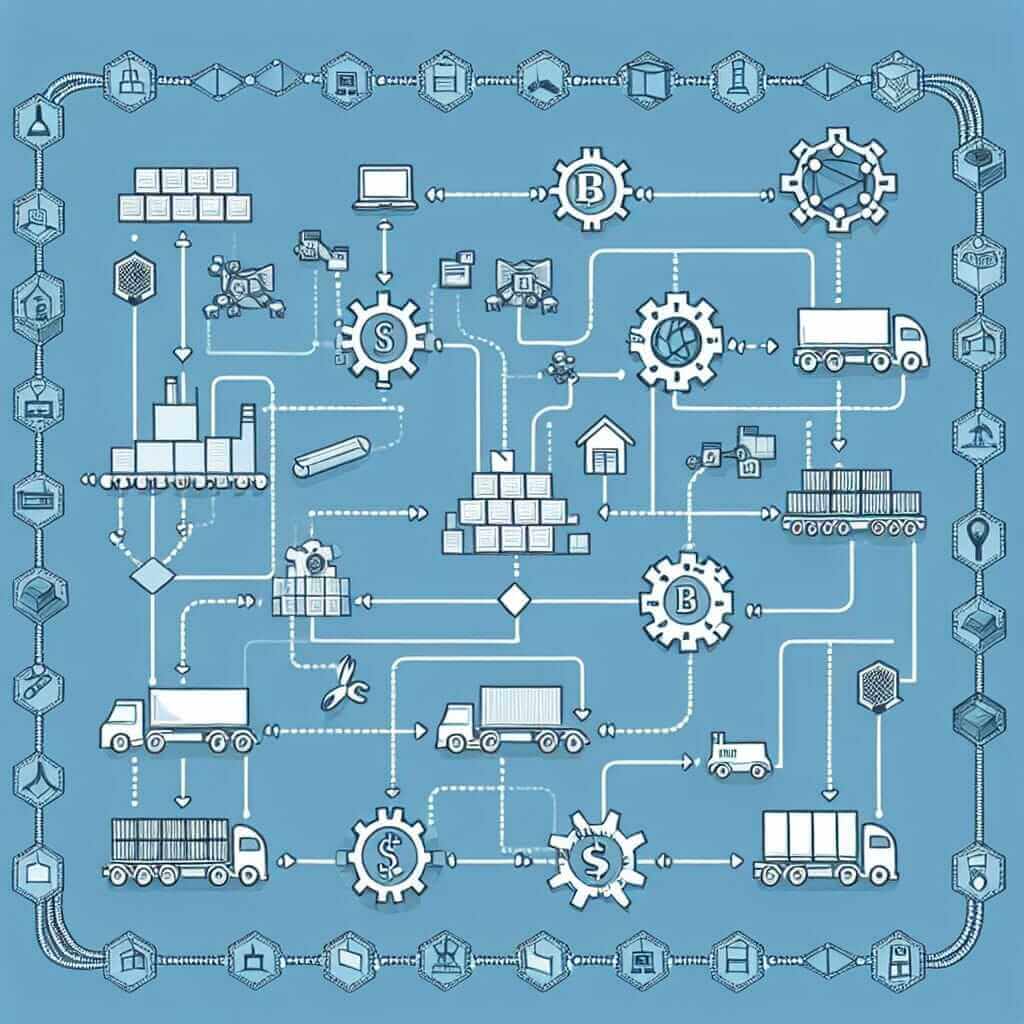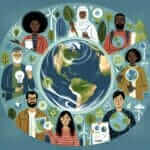The IELTS Reading section tests a candidate’s ability to read and understand texts that are increasingly complex and varied in topic. These texts often cover a wide range of subjects including technology, economics, science, and social issues. Today, we will delve into a highly relevant and contemporary topic: “How is blockchain technology influencing global governance structures?” This topic can frequently appear in current IELTS examinations due to its growing importance and relevance.
By mastering this topic, you can gain valuable insights and vocabulary that might increase your chances of success in the IELTS Reading test. Blockchain technology is revolutionizing various sectors, including global governance, making it an excellent candidate for a future IELTS Reading exam passage.
Sample IELTS Reading Passage: Medium Text
How is Blockchain Technology Influencing Global Governance Structures?
Blockchain technology, originally developed for cryptocurrencies like Bitcoin, is now profoundly impacting global governance structures. Its decentralized and immutable nature offers transparency and trust, altering how governments and international organizations operate.
One primary area where blockchain is making a notable difference is in the realm of transparent voting systems. Traditional voting systems often suffer from fraud and manipulation, undermining public trust in electoral processes. Blockchain-based voting systems, by contrast, ensure each vote is immutable, transparent, and easily auditable. Estonia, a pioneer in this field, has successfully implemented blockchain technology in its national elections, enabling secure and transparent voting for its citizens.
Another significant impact of blockchain technology on global governance is in enhancing supply chain transparency. Governments and international organizations often face challenges in monitoring the movement of goods and verifying their origins. Blockchain provides a decentralized ledger that all parties can access, ensuring the traceability and authenticity of products. For instance, the World Wildlife Fund (WWF) utilizes blockchain to track seafood from ocean to table, ensuring legality and sustainability.
 Blockchain Supply Chain
Blockchain Supply Chain
Smart contracts, a critical feature of blockchain technology, are also transforming governance structures. These self-executing contracts ensure compliance without the need for intermediaries. They are particularly beneficial in international trade, where trust between parties has often been a significant barrier. The United Nations has explored blockchain for smart contracts to streamline its procurement processes, reducing administrative overhead and enhancing efficiency.
Moreover, blockchain technology is redefining digital identity systems. Current systems are prone to data breaches, leaving individuals vulnerable to identity theft and fraud. Blockchain-based digital identity platforms offer a secure and immutable way to store personal information. Countries like Singapore and Sweden are already experimenting with these systems to enhance citizen identity management and ensure data security.
In conclusion, blockchain technology is not just a fad but a revolutionary tool reshaping global governance structures. Its ability to provide transparency, security, and efficiency is invaluable in today’s complex global landscape. As this technology continues to evolve, we can expect even more innovative applications that will further transform how we govern our world.
Reading Comprehension Questions
Multiple Choice
- What is one main advantage of blockchain technology in voting systems?
A. Reduced costs
B. Higher speed
C. Effortless setup
D. Transparency and immutability
Identifying Information (True/False/Not Given)
- Estonia uses blockchain technology for its elections.
- True
- False
- Not Given
Matching Information
-
Match the following features of blockchain technology with their respective impacts:
- A. Supply chain transparency
- B. Smart contracts
- C. Digital identity systems
i. Enhances data security
ii. Ensures traceability of products
iii. Streamlines international trade
Sentence Completion
- Governments often face challenges in verifying the __ of products.
Short-answer Questions
- Which international organization uses blockchain to track seafood?
Answer Key
-
D. Transparency and immutability
Explanation: The passage explains that blockchain-based voting systems ensure each vote is immutable, transparent, and easily auditable. -
True
Explanation: The passage states that Estonia has successfully implemented blockchain technology in its national elections. -
- A. Supply chain transparency – ii. Ensures traceability of products
- B. Smart contracts – iii. Streamlines international trade
- C. Digital identity systems – i. Enhances data security
-
origins
Explanation: The passage mentions that governments and international organizations face challenges in verifying the origins of products. -
World Wildlife Fund (WWF)
Explanation: The passage refers to the World Wildlife Fund (WWF) using blockchain to track seafood from ocean to table.
Common Mistakes
- Overlooking Keywords: Many candidates overlook keywords such as “ensure” or “enable,” which can change the meaning of a sentence.
- Misinterpreting the Question: Ensure you understand each question thoroughly before attempting to answer.
- Ignoring Paragraph Structure: Each paragraph usually contains one main idea. Identifying this can help locate answers more quickly.
Vocabulary
- Immutable (adj) /ɪˈmjuːtəbl/: Unchangeable, inalterable.
- Auditable (adj) /ɔːˈdɪtəbl/: Capable of being audited.
- Pioneer (n) /ˌpaɪəˈnɪər/: A person who is among the first to explore or settle a new area.
- Traceability (n) /ˌtreɪsəˈbɪləti/: The ability to track the origin and journey of a product or service.
Grammar Focus
- Present Perfect Tense: Used to describe actions that have occurred at some unspecified time and are relevant to the present (e.g., “Estonia has successfully implemented blockchain technology”).
- Passive Voice: Used to emphasize the action rather than the subject performing the action (e.g., “Blockchain technology is now profoundly impacting”).
Tips for High IELTS Reading Scores
- Practice Regularly: Expose yourself to a variety of texts to become familiar with different writing styles and vocabularies.
- Time Management: Learn to pace yourself to ensure you can attempt all questions within the allotted time.
- Understand the Question Types: Familiarize yourself with different types of questions such as matching headings, true/false/not given, and others to enhance your response strategies.


